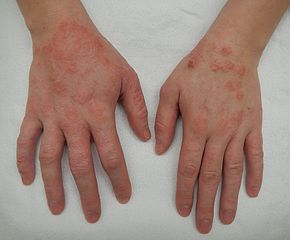Alcohol hand sanitizers cause dry hands and other skin problems
According to a clinical study published in a reputable medical journal, and cited by the National Institutes of Health, 88% of the hospital workers using alcohol hand sanitizers developed dry hands and other skin problems, and half of the people reporting these problem blamed their problems on their use of alcohol hand sanitizers.
The clinical study, named Alcohol hand abuse: a cross-sectional survey of skin complaints and usage patterns at a large UK teaching hospital, was published in the journal, JRSM Short Rep and the citation is 2011 Aug;2(8):68. It is published by the (US) National Institutes of Health here.
What is remarkable is that this clinical study was published in 2011.
So there is about a decade of experience and a reputable published clinical study showing that alcohol hand sanitizers are damaging to the skin of your hands.
Quoting the conclusions of the study:
Conclusion: This study demonstrated that 88% of respondents stated that they had new-onset skin problems, of which half-felt that alcohol gel was the main contributing factor. There was a detrimental effect on compliance with alcohol gel hand hygiene protocols in this group. This reflects the real life difficulties of staff in their endeavour to reduce hospital-acquired infections. Action is needed to improve the compliance with such a simple task and ensure that all is done to reduce nosocomial infection and reduce the potential financial burden. (emphasis supplied)
So here you have a reputable published medical journal article documenting what you probably already know – that alcohol hand sanitizers cause dry hands and other skin problems. They further point out that when employees avoid using hand sanitizer because it is drying and irritating their hands, this creates a hygiene problem that can result in spreading disease.
Avoid this risk to your family and business by switching to a non-alcohol hand sanitizer, using a formula recognized by the FDA as an effective hand sanitizer, while avoiding the skin drying and non-compliance issues caused by using alcohol hand sanitizers.
HandPower CleanerTM non-alcohol foaming hand sanitizer, made with the only FDA-recognized non-alcohol active ingredient, helps you avoid the problems caused by alcohol hand sanitizers by using an effective non-alcohol alternative.
Photo credit: Hand Eczema / Dermatitis – Wikimedia


